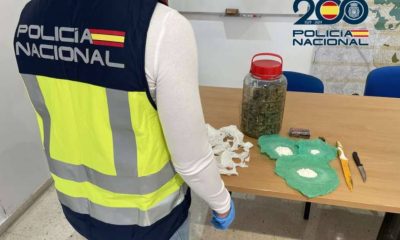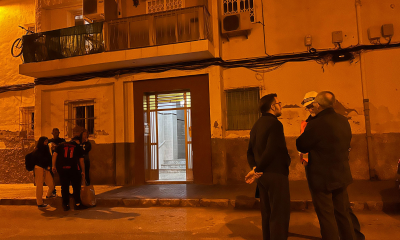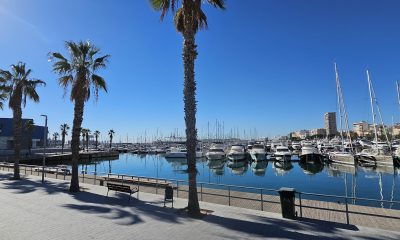Costa Blanca
Police Resources to Monitor Tourist Apartments Must Be Increased
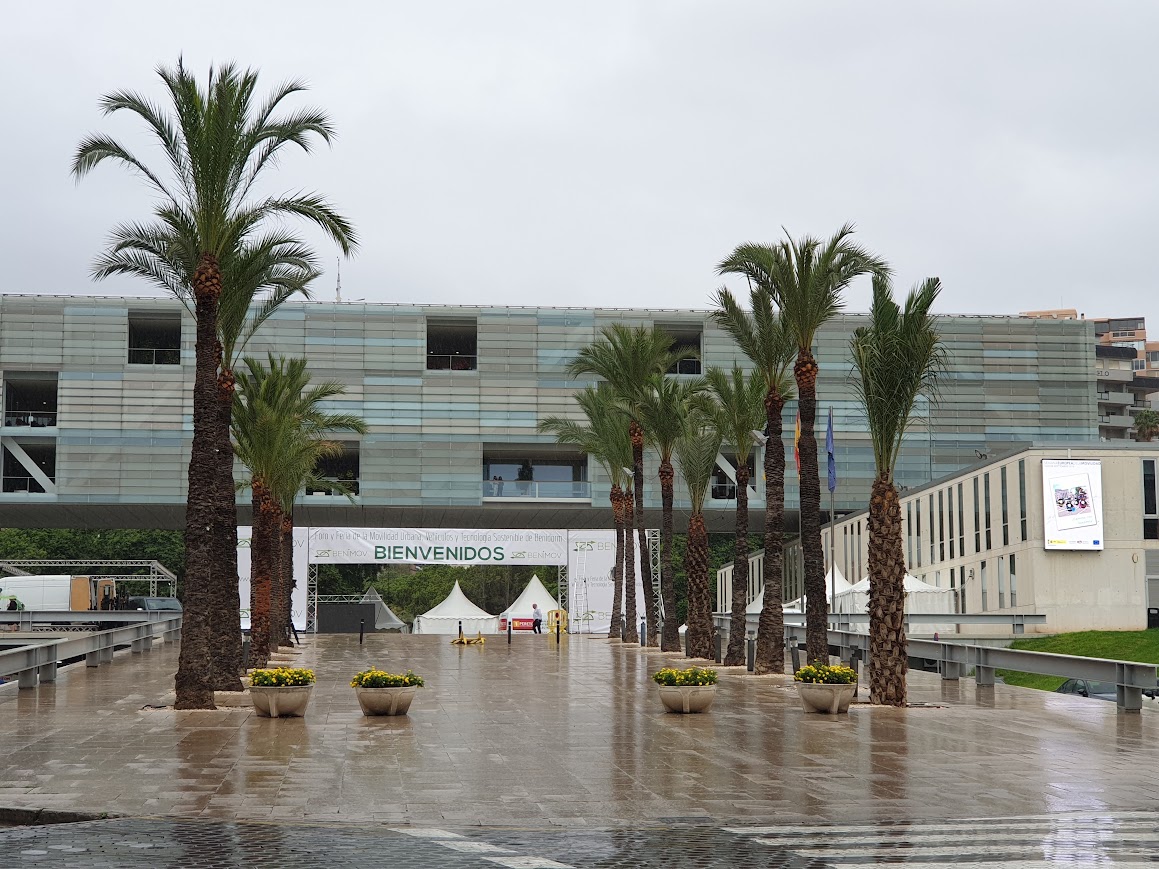
An agreement was recently signed between the Valencian Government and the Valencian Federation of Municipalities and Provinces (FVMP). The agreement stated that municipal entities would be responsible for monitoring compliance with regulations regarding tourist accommodation, and Benidorm was one of the municipalities that recently joined this responsibility.
The SPPLB, the ruling union in Costa Blanca’s capital, has issued a press release urging the Human Resources department to fill open jobs in the local police force without further delay amid this crisis. Twenty additional cop positions and six new inspector positions are what they’re aiming for.
To fulfil the commitment made by the City Council under the agreement that was ratified during the recent International Tourism Fair (Fitur) in Madrid, Francisco Ángel González, the spokesperson for the professional union, emphasised the “urgent” need to fill these positions.
González asserts that “it is necessary to strengthen the workforce, which is beginning to experience shortages due to ongoing retirements.”
The municipal administration in Valencia is responsible for carrying out the procedures for penalising infractions involving tourist accommodation, whether they are small, significant, or very serious, as assigned by the Valencian government.
Discover more from Costa Blanca Daily
Subscribe to get the latest posts sent to your email.
Costa Blanca
Competition on Spain’s railways is driving down prices
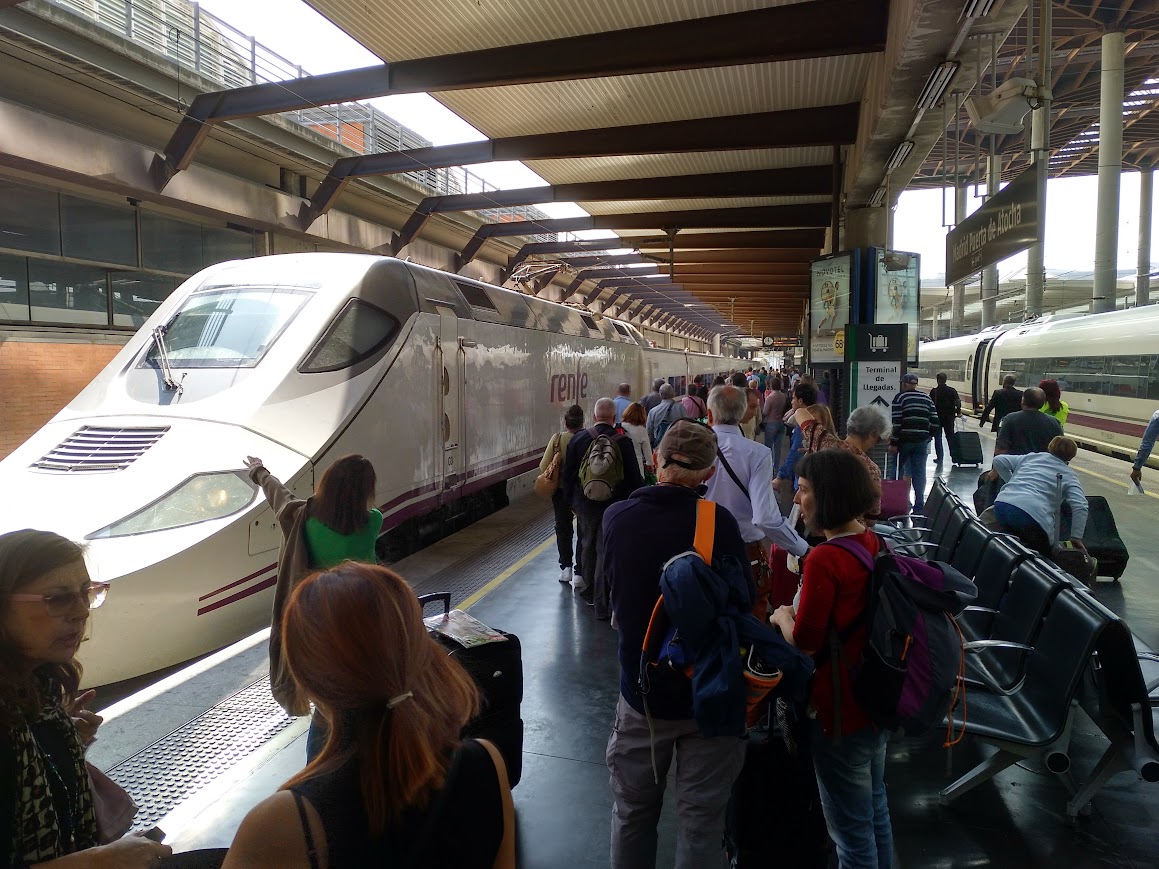
Recently, Spain’s high-speed railways have experienced a significant transformation. The country’s railway network has been opened to private operators since market liberalisation in 2020, and the results have been dramatic: ticket prices have decreased, availability has increased, and rail is now surpassing air travel on certain critical routes.
For travellers, this new era entails an increase in the number of available seats, an improved value, and a decrease in the number of compelling reasons to fly.
Fares are reduced when markets are open.
Spain’s high-speed lines, which were previously dominated by the national operator Renfe, now offer various services as a result of the entrance of new players such as Ouigo from France and Iryo from Italy. With a combination of full-service and budget-friendly offerings, these newcomers have revolutionised the industry.
This shift has had an immediate and substantial effect on prices:
In comparison to pre-competition levels, the average fares on the Madrid–Barcelona route have decreased by as much as 40%.
Ouigo has provided tickets at a rate as low as €9. Additionally, it attracted well over two million passengers during its inaugural year in 2021.
The same competitive pressure has resulted in a 27.6% decrease in tariffs on the Madrid–Alicante line.
This reduction in costs has rendered high-speed rail a compelling alternative to domestic flights, not only in terms of price but also in terms of convenience.
Rail Revolution in Numbers
The percentage of travel between Madrid and Barcelona that is attributed to rail has increased from 59% in 2019 to 81.8%.
In response to the advent of new competition, Renfe’s own low-cost service, Avlo, has contributed to the expansion of the rail market as a whole.
In the most recent figures from the CNMC (Spain’s competition authority), Ouigo received the fewest customer complaints of all operators.
CNMC reports that nearly 90% of passengers use these services sporadically rather than on a regular basis. The affordability of high-speed rail is attracting a broader base of leisure travellers, rather than just business passengers, although the majority of travellers are still infrequent users of the service.
Renfe commences to address the demand
The increase in capacity has made rail cheaper and more accessible. Experts in rail travel assert that the competition has been long overdue.
“The competition from high-speed operators, including Ouigo and Iryo, has resulted in a significant increase in the number of seats available and a decrease in fares.” Trains were frequently overcrowded and prices were exorbitant prior to this. Renfe had been under-providing and over-pricing on routes such as Madrid–Barcelona, in my opinion.
The short scheduling windows of Renfe were previously one of the most frustrating aspects of booking train travel in Spain. Frequently, the publication of tickets just two weeks prior to travel restricted early-bird savings and forward planning.
Smith also mentioned that Spain has experienced an additional advantage. “For years, Renfe has been infamous for its tardiness in launching ticket sales, occasionally with as little as two weeks’ notice. Such behaviour is absurd.” This remains an issue on numerous Renfe routes; however, on routes where they now face competition, they have miraculously prolonged the booking horizon to numerous months.
Not without opposition
The new landscape has not been well received by all, despite the advantages it offers to passengers. Renfe is concerned that low-cost competitors are employing unsustainable models and receiving state support in their home countries. There are also broader concerns about whether aggressive price cuts can be sustainable without compromising quality or service.
However, passengers are currently exercising their right to vote by boarding the train.
An irreversible return to the rails?
Spain’s rail network is rapidly becoming a symbol of the advantages that liberalisation can provide consumers.
Trains are no longer the costly and rigid alternative. They have become increasingly popular among a broader variety of travellers, as they are a fast, affordable, and environmentally friendly method of travelling between major cities.
Discover more from Costa Blanca Daily
Subscribe to get the latest posts sent to your email.
Costa Blanca
‘Cartagena’, the new electric Navy ship
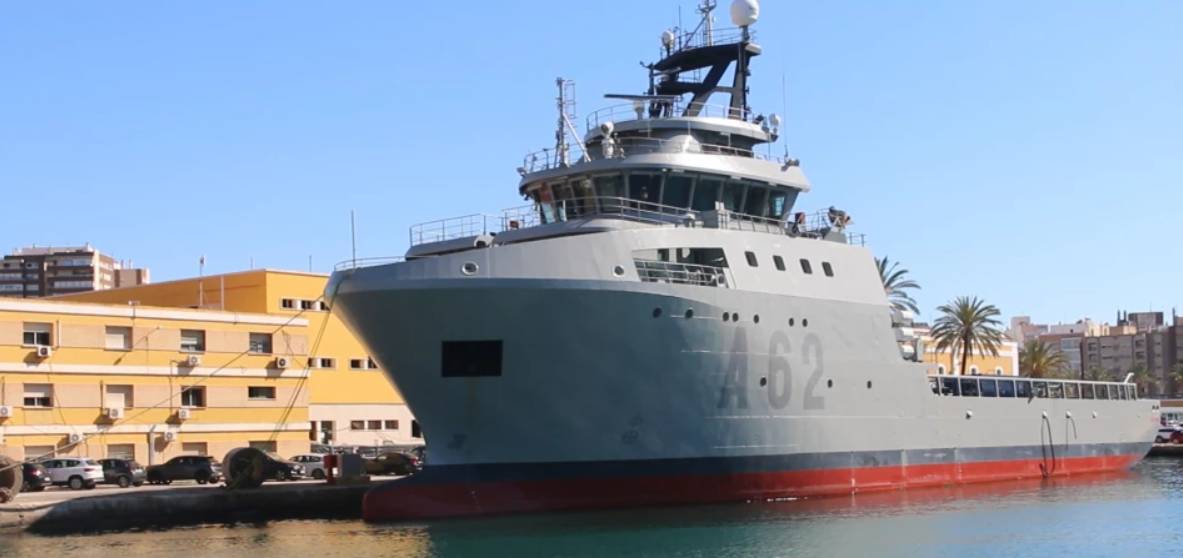
The initial mission of the new A62 support vessel “Cartagena” has already been scheduled for June, during which it will participate in military exercises that will be conducted south of the Canary Islands. This Thursday, the Navy unveiled a new unit that is situated at the Cartagena Arsenal and has the distinctive capacity to adjust to a variety of situations, as explained by its inaugural commander, Lieutenant Commander Carlos Cerdido Aramburu.
Following the Carnota, this is the second multipurpose vessel of this class to be integrated into the Navy. It will replace other vessels that have been in service for over 40 years, including the Las Palmas, the first Spanish vessel to partake in scientific missions in Antarctica. For the past decade, it has been incapable of fulfilling this function, and it has been relegated to the status of a support vessel for towing or training in the vicinity.
A replacement that is now guaranteed, according to the lieutenant commander. “The support vessels we previously had were deep-sea tugs that had been converted, and their capabilities were more restricted.” This substitutes the BIO ‘Las Palmas,’ which was modified to offer assistance during Antarctic expeditions. He also noted that the ‘Cartagena’ could offer assistance during Antarctic missions due to its ice-bound status.

The ship’s crane has a pulling capacity of up to 70 tonnes, which enables it to tow any Navy vessel, including the ‘Juan Carlos I,’ which is presently the largest. This is one of its most notable features.
Additionally, it features a novel tool for the Navy: the Dynamic Positioning System, which enables the ship to maintain its position within a metre of error without the need to anchor. Additionally, it is powered entirely by electricity. This is particularly advantageous in scenarios that involve the provision of fuel, water, or sustenance, as well as the clearance of mines and the assistance of divers.
Diverse objectives
The vessel, which was constructed in Turkey in 2015 at the request of a Norwegian civilian shipowner, is capable of conducting maritime surveillance missions, providing assistance to other units in the training of torpedo collection, towing, mine and demining, and diver support. Additionally, it can function as a command ship during international minesweeper deployments. The vessel is manned by a crew of 37 service members.
The First Commander confirmed that “this is not the first case,” despite the fact that the Navy does not frequently acquire and convert civilian ships. For instance, the ‘Tarifa’ and the ‘Alborán’ are responsible for fisheries inspection surveillance in Cartagena. Additionally, the ‘Isabel’ and the ‘Camino Español’ are used to support the Army.
This new unit was incorporated into the Cartagena Maritime Action Force Unit Command on January 30th and arrived at the Cartagena Arsenal on February 5th.
Discover more from Costa Blanca Daily
Subscribe to get the latest posts sent to your email.
Costa Blanca
Four minors arrested for smuggling drugs on a school trip
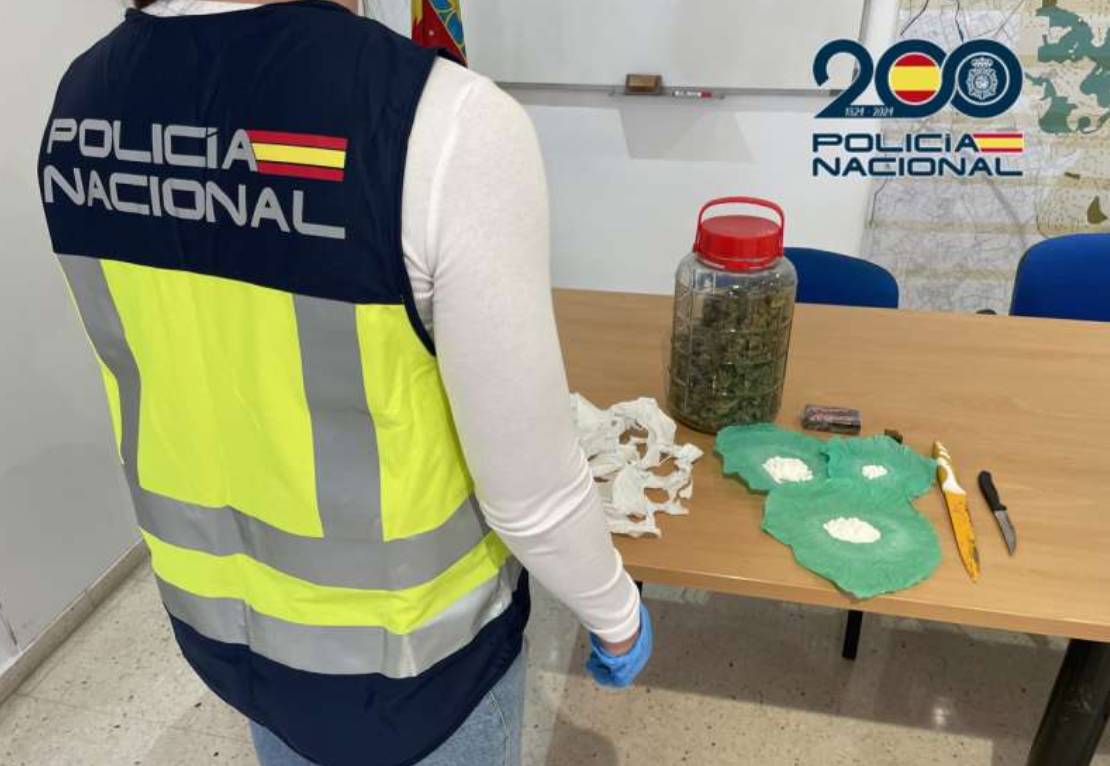
In two drug dealing operations conducted in Gandia, the National Police have apprehended five individuals, four of whom are juveniles.
According to a statement from the National Police, four minors under the age of 17 were apprehended for allegedly distributing hashish to students on a graduation trip.
The suspects were apprehended as alleged perpetrators of a crime against public health after their location and seizure of 80 grams of marijuana and three ecstasy tablets, following numerous investigations.
Furthermore, a private smoking establishment in the municipality of La Safor that was responsible for the sale of marijuana was demolished.
The putative perpetrator of the crime, a 40-year-old man, was apprehended at the scene. Additionally, 1,393 grams of marijuana and nearly nine grams of hashish were confiscated.
Discover more from Costa Blanca Daily
Subscribe to get the latest posts sent to your email.
-
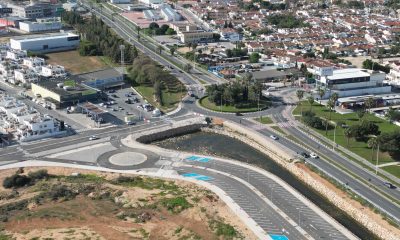
 Costa Blanca5 days ago
Costa Blanca5 days agoTorrevieja fails to comply with its commitment to open new road at La Hoya for Easter
-
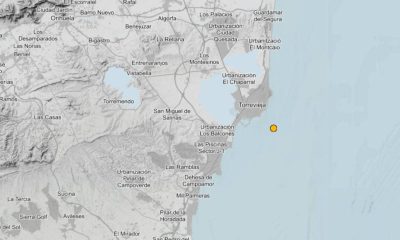
 Costa Blanca1 week ago
Costa Blanca1 week agoTorrevieja records a 2.8 magnitude earthquake
-

 Costa Blanca1 week ago
Costa Blanca1 week agoArrested in Murcia for activities linked to jihadist terrorism
-

 Costa Blanca1 week ago
Costa Blanca1 week agoThe Alicante Tourist Board website now available in seven languages
-

 Costa Blanca1 week ago
Costa Blanca1 week agoBenidorm will celebrate the 40th ‘Bike Day for All’ on May 4th
-
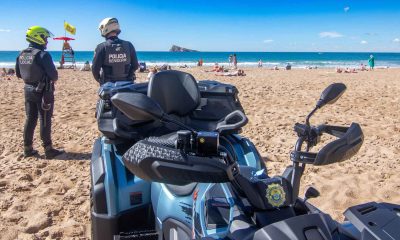
 Costa Blanca1 week ago
Costa Blanca1 week agoTwo new quad bikes to monitor the beaches of Benidorm
-

 Costa Blanca1 week ago
Costa Blanca1 week agoTorrevieja aims to have 200 local police officers by 2027
-

 Costa Blanca1 week ago
Costa Blanca1 week agoElderly man held captive by couple who scammed him out of 85,000€

